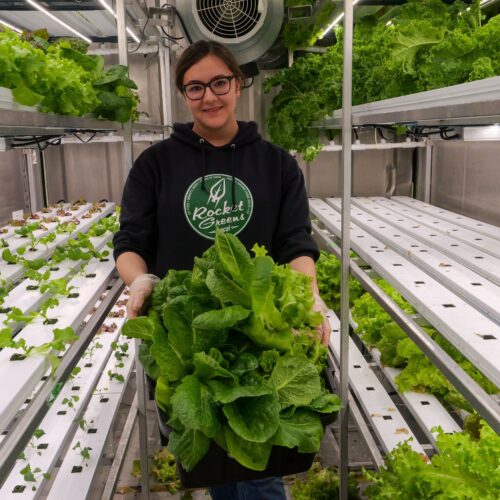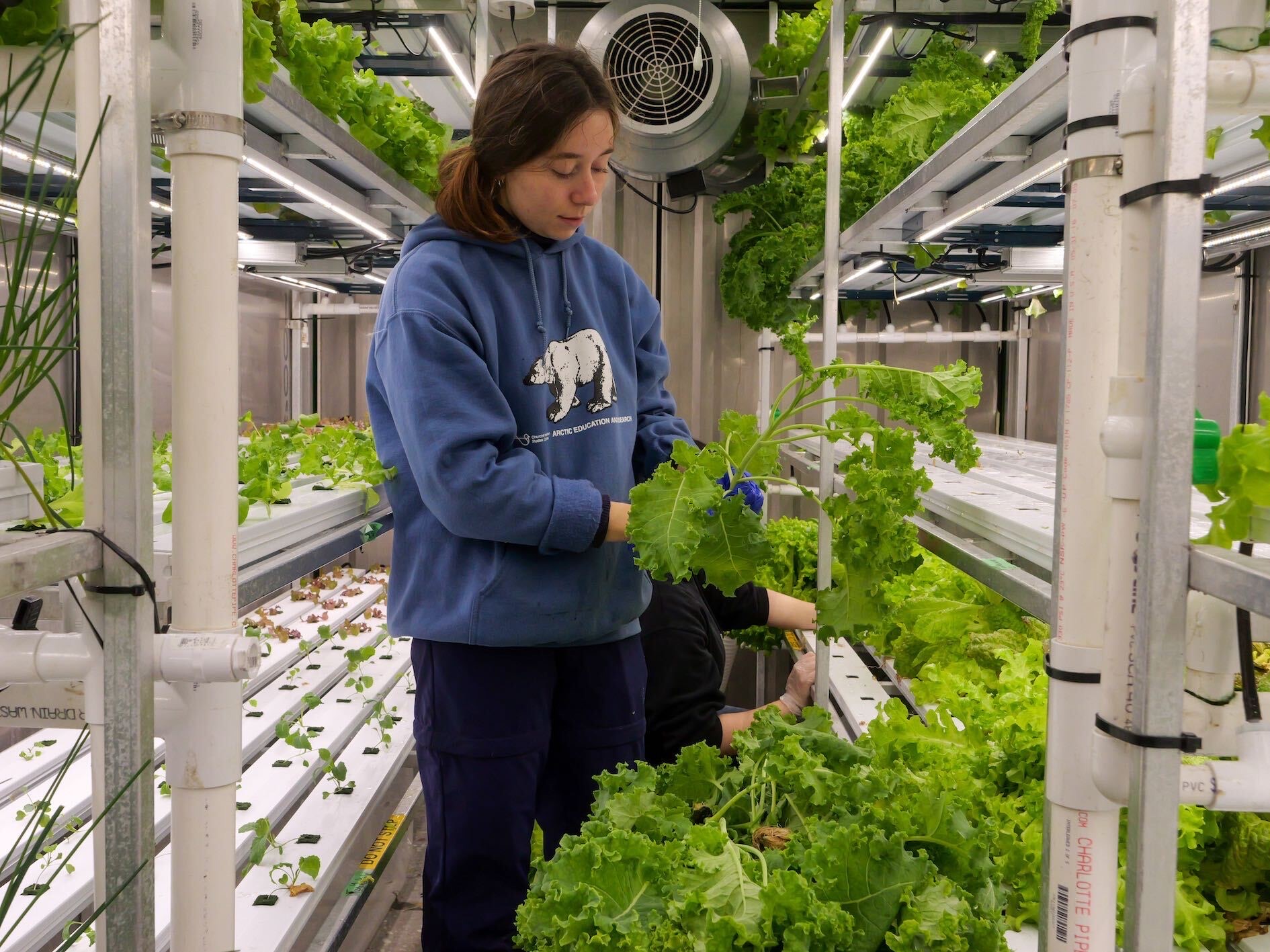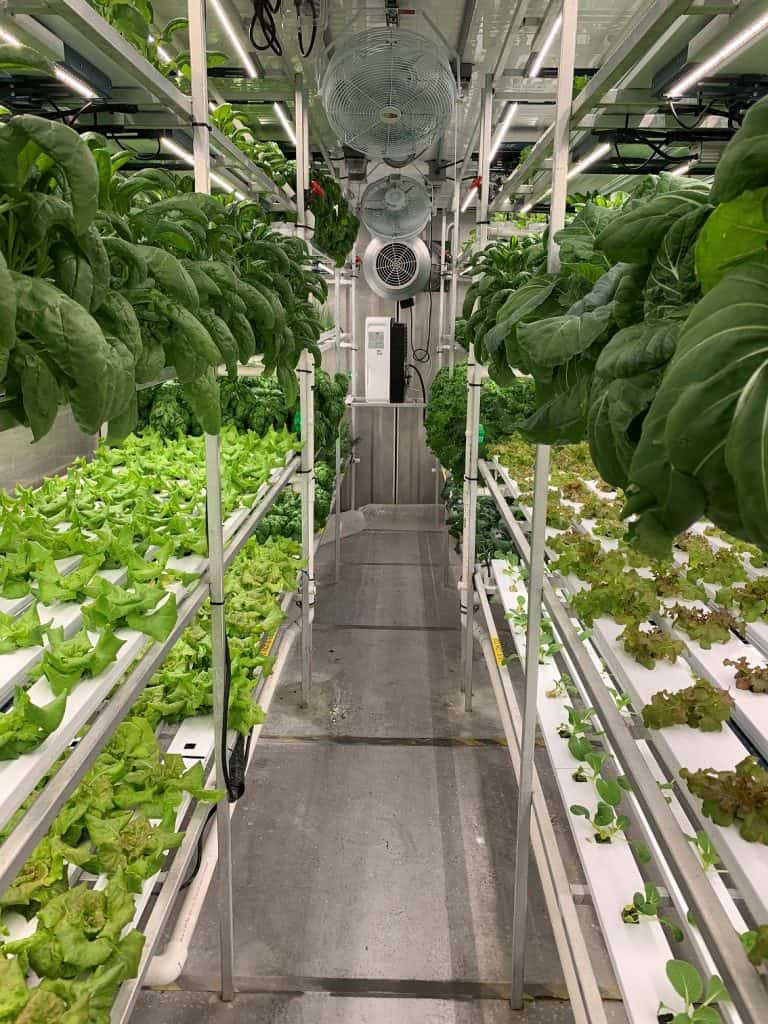How Local Food Systems Support Sustainability and Food Access
Do you know where the food on your plate comes from? In many cases, our food travels a long way to get into our kitchens. These food miles — the distance food travels from production to consumer — contribute significantly to greenhouse gas emissions, which are a major factor in climate change, and can also lead to reduced food freshness and nutrient loss over time. Additionally, large-scale industrial agriculture systems, while far-reaching, cannot make it everywhere; remote and marginalized communities often fall through the cracks, their residents left in food deserts and food swamps, without access to nutritious food.
Thankfully, local food systems can fill that gap — and promote environmental sustainability in agriculture, too! By fostering a closer connection between consumers and their food sources, local food systems not only reduce carbon footprints, but also enhance community well-being and resilience. Here’s a closer look at how these local systems bring widespread benefits.
THE POWER OF LOCAL FOOD SYSTEMS
Environmental Impact
Local food systems significantly reduce the need for long-distance transportation, a major contributor to greenhouse gas emissions. When food travels shorter distances, there’s a substantial decrease in carbon emissions, making these systems inherently more sustainable. Moreover, local food production often employs sustainable farming practices that prioritize soil health and biodiversity, further contributing to environmental conservation.
Economic Benefits
Local food systems can invigorate local economies. By supporting small-scale farmers and local businesses, these systems keep money circulating within the community. This economic model not only bolsters local economies, but also creates job opportunities, contributing to a more robust and self-reliant community.
Enhancing Food Access
Food access and instability are pressing issues in many parts of the world, particularly in remote or marginalized communities. These areas often face challenges such as limited availability of fresh, healthy food options; high food prices due to transportation and logistical costs; and a reliance on imported goods that can be disrupted by external factors like weather events or global supply chain issues. Food insecurity in these communities can lead to various health problems, including malnutrition, obesity, and diet-related diseases, while also exacerbating social inequalities.
Local food systems present a powerful solution to these challenges by establishing a sustainable and accessible food supply within these communities. By growing food locally, these systems can significantly reduce dependency on distant sources, lower transportation costs, and minimize the risk of supply disruptions. This ensures a more reliable source of fresh and nutritious produce. Local food initiatives can also be tailored to the specific needs and cultural preferences of the community, further enhancing food accessibility and acceptance.
Rocket Greens: A Model of Local Sustainability in Churchill
In Churchill, Manitoba, Rocket Greens showcases the incredible potential of local food systems in enhancing sustainability and food access. Churchill, faced with the challenges of remote living and harsh climates, has found an innovative solution in Rocket Greens. Here’s how this local food system provides vital support and far-reaching benefits for our Churchill community.
Overcoming Environmental Challenges
Churchill’s harsh weather conditions make traditional farming challenging — if not impossible — for much of the year. Rocket Greens addresses this through the use of hydroponic technology, which allows for year-round indoor farming. This method is not only efficient, but also environmentally friendly, using less water and no pesticides.
Economic and Social Impact
Rocket Greens has become more than just a source of fresh produce; it’s a symbol of community empowerment and resilience. By providing locally grown vegetables, this initiative supports the local economy and promotes food security. Two thirds of Rocket Greens veggies go directly to community members, showcasing the powerful role local food systems can play in remote and challenging environments.
Enhancing Food Access in the North
For the residents of Churchill, Rocket Greens is a game-changer in terms of food access. It offers a stable supply of fresh, nutritious produce, which is otherwise hard to come by due to the community’s isolated location. This accessibility to healthy food is a crucial step in combating food insecurity and promoting overall health and well-being in the region.
If you’re in the Churchill area, sign up now to receive a weekly LaunchBox filled with a variety of herbs and greens like bok choy, spinach, kale, leaf and butterhead lettuce, Swiss chard, arugula, and more. These leafy greens are as fresh as you can get, delivered right to your door!
Or, donate to the Churchill Northern Studies Centre today to support our Rocket Greens initiative! Your contribution will help sustain and expand this vital project, ensuring that the community of Churchill continues to have access to fresh, healthy, and sustainably-grown produce.
Your support for Rocket Greens is more than just a donation; it’s an investment in a sustainable future and a testament to the power of community-driven initiatives. Together, we can ensure that local food systems like Rocket Greens continue to thrive, providing essential support to communities like Churchill. Make a difference with a donation today and join us in championing sustainability and food access for all.
The Churchill Northern Studies Centre is an independent, non-profit field station working to understand and sustain the North. We provide accommodations, meals, equipment rentals, and logistical support to scientific and social researchers working on a diverse range of topics of interest in the subarctic. We also facilitate learning programs throughout the year for non-credit learning vacations, university credit courses, and youth programming. Explore our Learning Vacations to see how you can experience the subarctic in a way that’s meaningful, personal, and unforgettable. Or, donate today to support greater understanding of — and deeper appreciation for — the natural, social, economic, and cultural environments of the North.



